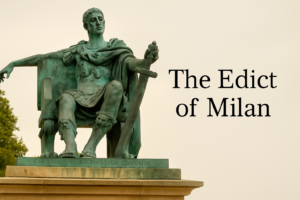Religions, as profound systems of beliefs and values, undoubtedly carry inherent biases, influenced by human experiences, worldviews, and cultural backgrounds. Each religion operates within its unique teachings and guidelines, prescribing moral codes, social etiquettes, and desired behavior. However, the interpretation of these sacred texts is not devoid of biases, as it is shaped by religious leaders and adherents, leading to variations in opinions even within a single faith.
The manifestations of bias within religions can be multifarious. One common form is religious exclusivism, where certain groups are considered as outsiders or even condemned, fostering an ‘us versus them’ mentality. This exclusivity can inadvertently contribute to discrimination against those deemed different or outsiders, further perpetuating division and animosity.
Another aspect of religious bias lies in the promotion of specific social or political ideologies. Religious teachings have been instrumental in shaping the fabric of societies and governing structures throughout history. However, when religious doctrines are used to support particular political agendas, it can lead to a selective understanding of social justice and equality, often excluding marginalized groups.
Moreover, religions can harbor internal biases against practices or beliefs that challenge their established frameworks. These biases can limit the progress and evolution of religious thought and dialogue, impeding the integration of new perspectives and diverse ideas.
Furthermore, religions are not isolated entities but exist within broader social contexts. As such, they can inadvertently reflect and perpetuate biases prevalent in society at large. Historical prejudices can find validation through religious teachings, leading to the justification of discrimination based on gender, race, or caste.
It is crucial to recognize that biases in religion do not always carry a negative connotation. They are, in essence, an inherent part of the human experience, influenced by personal and collective environments. As individuals and communities, we carry our unique perspectives, shaped by our cultural backgrounds and experiences. Embracing this diversity of beliefs while acknowledging the existence of biases is vital for promoting interfaith dialogue and coexistence.
Furthermore, understanding our own biases can lead to greater empathy and compassion towards others who may hold different beliefs. Engaging in respectful and open conversations with individuals from different faiths can foster a deeper appreciation for the richness of human spirituality.
To combat harmful biases within religions, religious leaders and communities must actively reflect on their teachings and practices to ensure inclusivity and fairness. Embracing the universal values of compassion, love, and respect can bridge the gaps between different religious traditions and create a more harmonious world.
In conclusion, the subject of bias within religions is intricate and multifaceted. Religions, being products of human experiences and cultural backgrounds, carry inherent biases that can manifest in various ways. While recognizing these biases is essential, it is equally crucial to embrace diversity, promote understanding, and engage in constructive interfaith dialogue to foster a world of acceptance and harmony.













